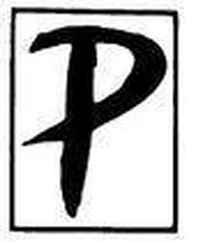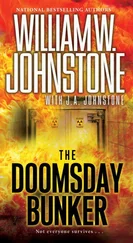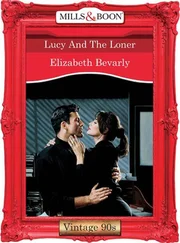Not finding anything among the papers on the desk, he jerked open the drawers and pawed through them. That proved just as fruitless, leaving only the filing cabinets in the outer office.
He hurried in there and yanked open a drawer. He pulled out a handful of papers and started skimming through them, discarding them when he didn’t find any helpful information. The sheets of correspondence, bills, and legal documents drifted down and soon covered the floor around his feet.
He was working on the third drawer when he found a stack of memorandums dated almost three years earlier. One of them bore the scribbled notation D.L. Golden Gate $5000 C.B. Below that, written in a slightly different colored ink, probably at a different time, were the initials E.G. and W.F. , followed by $300.
Ed Gillespie and Walt Farley, Conrad thought. Someone had paid Monroe $5000 to set up the ambush, and he had turned around and paid Gillespie and Farley the princely sum of $300 to carry out the killing. You get what you pay for, Conrad told himself, and Monroe hadn’t gotten much out of Gillespie and Farley except spectacular failure.
And a final payment of five .38 caliber bullets in the chest from the guard downstairs in the bank.
Conrad had no doubt the C.B. on the note meant him. And Golden Gate could certainly refer to San Francisco. The Golden Gate was the opening between the Pacific Ocean and San Francisco Bay, and it was also a popular name for businesses in the city.
But who or what was D.L. ? Conrad had no idea. Claudius Turnbuckle might be able to find out. Conrad would wire him with the information immediately, so Turnbuckle could start working on the problem while Conrad was on his way to San Francisco.
He stuffed the memorandum in his pocket and turned away from the filing cabinets, the papers on the floor crackling and crinkling under his boots as he did so. When he came around to face the door, he stopped short and didn’t move except to raise his hands slightly.
He was staring down the barrel of a gun.
Chapter 5
“Mr. Browning, you’re making it mighty difficult for me to extend the courtesy to you that I want to,” Deputy Wallace said in tightlipped anger from behind that gun. “There’s only so far your reputation as one of our former leading citizens will get you.”
“Take it easy, Deputy.” Conrad didn’t know if Wallace had seen him slip the piece of paper in his pocket, but he didn’t intend to give it up unless he absolutely had to. “I haven’t done anything wrong.”
“Carl Monroe’s lying on the floor of that bank downstairs, dead as a mackeral!”
“I didn’t shoot him.” Conrad shrugged. “You can check my gun. It hasn’t been fired since that ruckus in front of the hospital earlier.”
Wallace came farther into the office. “I know who shot Monroe. There are plenty of witnesses to what happened. I’m not going to lose any sleep over him getting ventilated. He was always too slick to get any blood on his own fingers, but he was part of plenty of dirty dealings that wound up with people getting killed. That doesn’t mean you’re in the clear here. Monroe got shot because he was shooting at you.”
“That sounds to me like I didn’t do anything wrong, like I was the victim,” Conrad pointed out.
“Blast it, I knew you were gonna come here! That’s why I didn’t tell you where Monroe’s office was and I tried to get the marshal’s permission to pull Monroe in for questioning as quick as I could. But you beat me here anyway, and now he’s dead!”
“There’s nothing illegal about paying a visit to a lawyer in his office. Monroe panicked when I showed up and told him who I was. Seems to me that’s just as good as a confession that he was mixed up in that attempt on my life.”
Conrad left out any mention of him pointing his gun at Monroe. The only other person who knew about that was the blond secretary, and he had a hunch she was going to make herself scarce for a while. She probably knew about some of Monroe’s crooked business, and didn’t want to get mixed up in any investigation.
“What happened then?” Wallace asked.
“Can I put my hands down?”
Wallace thought about it for a second, then shrugged and motioned with the barrel of his gun for Conrad to lower his hands. “You said Monroe panicked? What do you mean?”
“He ran out of here before I could stop him. I went after him. He took the elevator, so I went down the stairs. We got to the lobby of the bank at the same time. He took a shot at me and tried to rush out. The bank guard thought Monroe was a robber and was trying to get away with the bank’s money. He opened fire. That’s all I know, Deputy.”
“Yeah?” Wallace motioned with his gun at the litter of papers on the floor. “What about all this?”
“It was like this when I came back up here,” Conrad lied. “Somebody must’ve come in here after Monroe and I ran out and started going through his papers.”
“Somebody, eh? Who would do a thing like that?”
“Maybe somebody who worked for Monroe, or some other business associate?” Conrad suggested. “You said yourself he was mixed up in plenty of crooked work. Someone could have been trying to find blackmail material, or something like that.”
“I don’t know who was the slickest one here, you or Monroe,” Wallace said disgustedly as he holstered his pistol in a cross-draw rig on his left hip. “I’ve got a strong hunch you’re not telling me the whole truth, Mr. Browning ... but I don’t reckon I can prove it. Since there are more than a dozen witnesses downstairs who can confirm that you didn’t shoot Monroe ... just get out of here. You’re free to go.”
“I suppose you want me to stay in Carson City.” Conrad was prepared to ignore that order if he had to. Now that he had a lead in San Francisco, even a small one, he wasn’t going to allow anything else to delay him.
Wallace surprised him by saying, “No, I’d rather you get out of town. The marshal may not agree with that, but considering the hell that’s broken loose today, I think it would be in the interest of public safety for you to light a shuck out of here.”
Conrad smiled. “That can be arranged.”
“I warn you, though,” Wallace went on, “Monroe had a secretary, a woman named Lorraine Eastman. I’m going to find her and talk to her. If she tells a different story than you do, I may be issuing a warrant for your arrest.”
Wallace could issue all the warrants he wanted, Conrad thought. By the time the lawman got around to doing that, he would be in San Francisco and that warrant wouldn’t mean a thing. If necessary, Conrad wouldn’t come back to Carson City.
After all, it was no longer his home.
It was just one more in a long line of places where people kept trying to kill him.
With everything that had been going on, Conrad hadn’t had a chance to get to the train station and check to see when the next westbound train would be coming through. To his chagrin he learned he had missed the train by an hour.
“But there’ll be another westbound at nine o’clock tomorrow morning, Mr. Browning,” the clerk told him. “Would you like a ticket on it?”
Conrad nodded. “Yes, thanks. All the way through to San Francisco.”
The delay chafed at him, but the quickest way to reach the coast was to wait for the train the next morning. He went back to the hotel to wash up, change clothes, and eat a late lunch.
He had almost accomplished the first two of those goals—he was buttoning up a clean shirt—when a knock sounded on the door of his suite, which were the best accommodations in the hotel. Considering what had already happened, Conrad figured it would be a good idea to be careful. His gun belt was draped over the back of a chair in the sitting room. He slid the Colt from its holster as he went to the door. “Yes?”
Читать дальше












